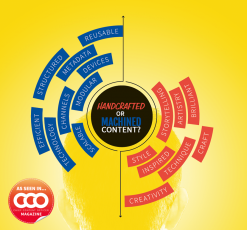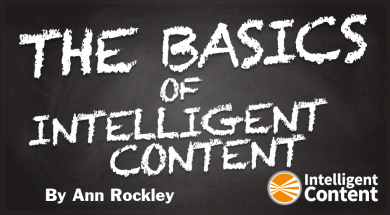
Editor’s note: We bring back Ann Rockley’s article on machined content that we shared last year. It originally appeared in the June 2015 Chief Content Officer. Want to hear the handcrafted-content side? Read Jay Acunzo’s original side of the debate.Continue Reading











